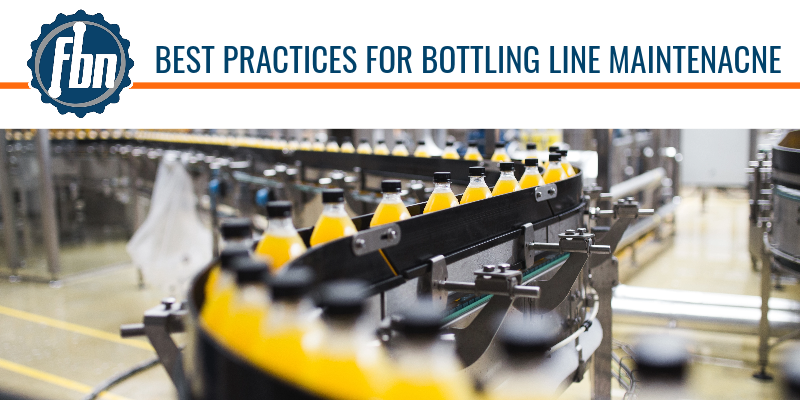In the dynamic world of the bottling industry, bottling line maintenance is essential for consistent productivity and efficiency. Regular maintenance plays a pivotal role in preventing breakdowns, reducing downtime, and maximizing the lifespan of equipment. In this blog post, we will explore some of the best practices for bottling line maintenance to help you optimize operations and ensure a smooth production process.
Develop a Comprehensive Bottling Line Maintenance Schedule
Creating a well-defined maintenance schedule is the foundation of effective bottling line maintenance. Consider the manufacturer’s recommendations and industry standards while customizing the schedule to suit your specific equipment and production needs. This schedule should include routine inspections, lubrication, cleaning, calibration, and preventive maintenance tasks.
Conduct Regular Inspections
Regular inspections are critical for identifying potential issues before they escalate into costly breakdowns. Train your maintenance team to perform visual inspections to check for signs of wear, loose connections, leaks, or any abnormalities. Utilize checklists and document inspection findings to maintain a comprehensive record of the line’s condition over time.
Implement Lubrication and Cleaning in Bottling Line Maintenance
Proper lubrication of moving parts and regular cleaning of bottling equipment are crucial maintenance tasks. Follow the manufacturer’s guidelines to select the appropriate lubricants for each component. Develop a systematic cleaning schedule to remove debris, residue, and contaminants that can impede the line’s performance and compromise product quality.
Train and Empower Bottling Line Maintenance Personnel
Invest in comprehensive training programs for your maintenance personnel. Equip them with the knowledge and skills to handle routine maintenance tasks, troubleshoot issues, and perform minor repairs. Encourage proactive communication between maintenance and production teams to promptly address concerns and improve collaboration.
Maintain an Inventory of Spare Parts
Having a well-managed inventory of spare parts is essential for minimizing downtime. Identify critical components and maintain an adequate stock to address potential failures. Work closely with suppliers and manufacturers to ensure timely availability of spare parts and keep track of usage to optimize inventory levels.
Embrace Predictive Maintenance Techniques
Incorporate predictive maintenance techniques to anticipate and prevent equipment failures. Utilize advanced technologies, such as condition monitoring sensors, to track performance metrics and detect deviations from normal operating parameters. Implement predictive maintenance software that utilizes data analytics to identify patterns, predict failures, and schedule maintenance activities accordingly.
Continuous Improvement and Documentation
Regularly review maintenance procedures and performance metrics to identify areas for improvement. Encourage feedback from maintenance personnel to enhance processes and optimize efficiency. Maintain detailed documentation of maintenance activities, including tasks performed, dates, and any relevant observations or adjustments made. This documentation serves as a valuable resource for future reference and troubleshooting.
Here at FBN we make direct replacement parts for all major filler and capper OEMs such as US Bottlers, Zalkin, Arol, Krones, Alcoa, Capem, Pneumatic Scale, Pacific, Filler Specialties and more. We also provide service and support for each. To see our full list of service capabilities head over to the service tab on our website.
Efficient bottling line maintenance is crucial for ensuring uninterrupted production, minimizing downtime, and maximizing equipment lifespan. By implementing these best practices, you can achieve optimal performance and streamline your bottling operations. From developing a comprehensive maintenance schedule to embracing predictive techniques and empowering your maintenance team, your operation will run better than ever. Remember, proactive maintenance is the key to a successful and efficient bottling line.







